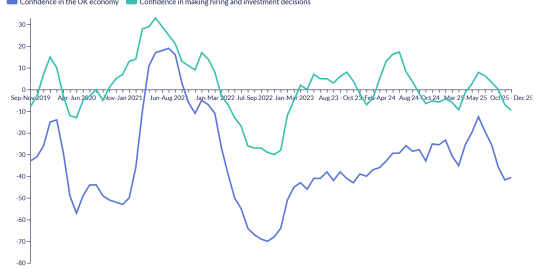Doing a Masters doesn't necessarily put you at an advantage when going for a job and is unlikely to increase your pay, according to recruitment specialists who attended the Penna Barkers debate on the state of graduate recruitment and development.
Graduate recruiters discussed why in the current market it's difficult for candidates to differentiate themselves and difficult for employers to identify quality candidates. A good education is now a given - there are lots of people who go to good Universities and get a 2:1 - therefore education is now no longer seen as a differentiator. But there is a concern that the lack of graduate jobs currently available is leading to too many students staying on to complete masters degrees.
Martin Thomas, Head of Recruitment at BT said: If I was advising a graduate who is thinking about doing a Masters or going travelling now I would tell them to go travelling. A Masters will get them in more debt and I can honestly say that I would not automatically recruit someone with a Masters over and above another candidate with the same first degree. “
We need graduates with the right skills and experience. Research shows that many graduates lack soft skills, such as team working and this is what we are finding as employers - we need graduates who can demonstrate they have these skills and are ready for the world of work.
Panellists and audience members discussed the present and future state of graduate recruitment and development. The panel included:
· Anne Riley, Managing Director of Penna Barkers
· Karen Martin, Group Graduate Resourcing Manager, The Royal Bank of Scotland Group
· Martin Thomas, Head of Recruitment, BT
· Nicola Catherall, former Training & Development Manager at Guardian News & Media
Phillip Lane, Head of Planning at Penna Barkers says, It’s very difficult to judge like for like when looking at work experience and many of the more qualitative skills at the first stage of a recruitment process, which makes it very difficult to select the most suitable candidates. But these skills are arguably more important than academic qualification and will continue to be the differentiating factor.
“The challenge for employers is to communicate what is of real value to them and to make sure that their recruitment systems and processes are set up to select candidates who have these skills. And the challenge for graduates is making sure that they get the right experience and can demonstrate they have these soft skills.”
The debate also raised a number of other interesting areas including:
· Employers need to be flexible and sensitive to the needs of graduates and improve communication about the opportunities available to them.
· As people stay in their jobs and there are fewer opportunities to move up the ladder organisations need to support individuals in managing their career development.
Travelling the world could be a better way to secure a job than doing a Masters

Doing a Masters doesn't necessarily put you at an advantage when going for a job and is unlikely to increase your pay, according to recruitment specialists who attended the Penna Barkers debate on the state of graduate recruitment and development.




